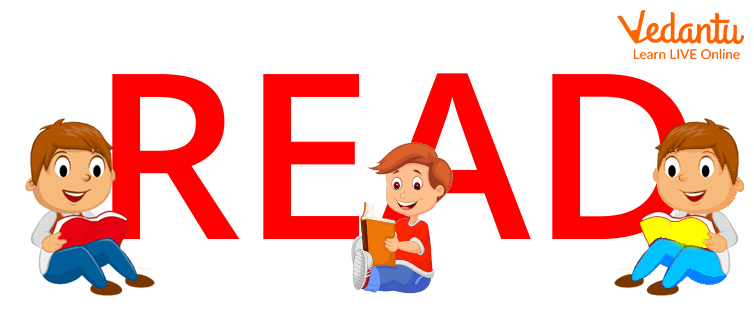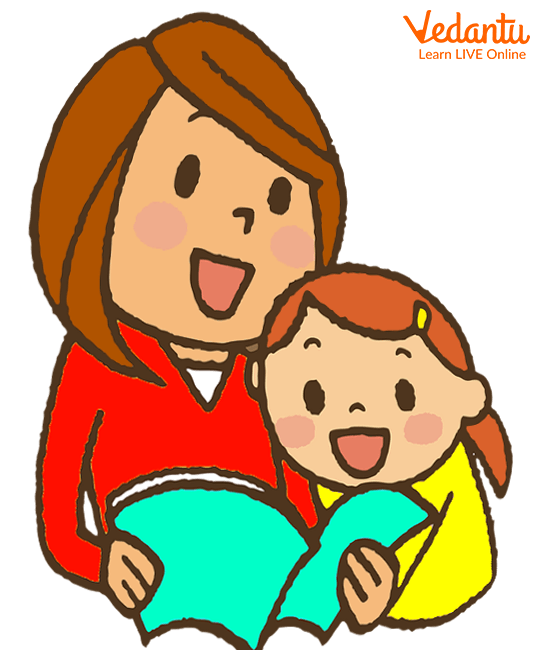




Best Books and Proven Strategies to Help Kids Read More Every Day
Reading for kids engages their thoughts in the same way that they learn so much from their environment. They develop connections between what they hear and observe as they absorb the narrative. It's all about exploring diverse worlds with a child when it comes to teaching them to read. While there is sufficient evidence to support the importance of establishing reading abilities in a child's development, it is important to remember that teaching children to read is a process.
Reading should be a pleasurable experience for children. Because each child learns to read at their own rate, you'll need to come up with novel approaches to instil good reading habits in children.
Different Ways to Reading for Kids
Read to Your Child
An infant can look at pictures, listen to your voice, and point to objects on cardboard pages at the age of a few months. Point to the pictures and repeat the names of the various objects to help your toddler. Your youngster will learn the value of language by focusing on visuals and linking words with both pictures and real-world items.
Before they even notice the existence of printed words on a page, children learn to enjoy the sound of the language. Children's imaginations are stimulated and their awareness of the world is expanded when books are read aloud to them. It aids in the development of language and listening abilities, as well as preparing students to comprehend written material.

Kids Reading Books
Learning to read will be as natural as learning to walk and talk after a youngster has been accustomed to the rhythm and melody of language. Even after your children have learned to read independently, you should continue to read aloud to them. You can push young readers' understanding and motivate them to develop their skills by reading stories that are on their interest level but above their reading level.
Set a Good Example by Reading Often
It all starts at home when it comes to generating interest in reading. Allow your children to witness you reading at least once a day, even if it's only for a few minutes. Read whatever you want! Imitation is something that young children enjoy doing. As a result, seeing you read will demonstrate that reading is a common activity.
Interactive Story Reading for Kids
While reading to your kid, have fun. Turn your kindergarten stories into a show with preschoolers. Sing, dance, make a fool of yourself, cry, and exaggerate! Use a variety of voices and expressions to bring the characters to life. Remember that how you read to them is just as important as what you read to them. A little drama entertains the child while also improving his or her understanding.
Discuss Books and Poetry
In Year 3, your child will have the opportunity to discuss the books that they have read and those that have been read to them. Children demonstrate their understanding and learn that various people have different ideas about the topics they read in these exchanges.
Your child may discuss books in a small group or with the entire class. These activities are good practice for taking turns and listening to what others say, as well as increasing their comprehension skills.
Advertise the Joy of Reading!
Our goal is to get kids excited about reading so that they can practise reading on their own and become fluent readers. When children enjoy reading, this occurs. What fast-food restaurants do for hamburgers, we parents can do for reading. ADVERTISE! We also promote ourselves by reading wonderful stories and poems to children.
We can assist our children in obtaining the resources they require to succeed in life. It is vital to have access to information via the printed word. Knowledge is power, and there is plenty of it in books. However, reading is more than just a useful skill. We can enrich our intellect by reading books, as well as relax and enjoy some valuable free time.

Mother Reading For Kids
Allowing Your Kid To Make Their Own Decisions
When children have a say in what they read, they are more engaged. Set up a library at home or plan trips to the bookstore to get kids enthused about reading. Choose books that you think your child will appreciate and let them choose what you will read together. Be prepared for your child's tastes and opinions to surprise you. Encourage them to discuss the books they've picked. Encourage them to talk about what they loved about it. If your child wants to read a book again, let them! They can improve their reading skills by repeating words with the same letters and their combinations and seeing them several times.

Girl deciding which book she wants to read
Regularly Listen To Your Child Read
As a home-school reader, your child will most likely have a say in the book they read. Although your child will most likely accomplish some reading on their own, it is still beneficial to listen to them read.
By taking the time to listen, you will be able to assist them with any unfamiliar vocabulary and discuss the book with them to ensure that they comprehend it. Seeing words on paper benefits your child's other English skills as well: reading aloud helps them understand, spell, and grasp how syntax and punctuation are used to convey meaning.
FAQs on Reading for Kids: Engaging Tips to Spark a Love of Reading
1. What are the key benefits of making reading fun for kids?
Making reading fun for children offers immense benefits beyond just literacy. It helps stimulate their imagination, expands their awareness of the world, and develops crucial language and listening skills. A positive and enjoyable early experience with books fosters a lifelong love for learning and improves their ability to understand written text as they grow.
2. How can I make reading time more fun and engaging for my child?
To make reading enjoyable and not a chore, you can try several creative strategies:
Create a Reading Nook: Designate a special, cosy corner with pillows and good lighting to make reading feel like a treat.
Use Expressive Voices: Act out the story by using different voices for each character to make it more dramatic and entertaining.
Let Them Choose: Allowing your child to pick the book gives them a sense of control and increases their interest.
Make it Interactive: Pause to ask questions, discuss the pictures, and predict what might happen next. For more ideas, explore different ways to practise reading with kids.
3. What are some fun reading activities for kids beyond just reading books?
You can turn reading practice into a game with many fun activities:
Word Scavenger Hunt: Hide words around the room and have your child find them and read them aloud.
Picture Storytelling: Use wordless picture books to encourage your child to create their own narrative, which is a great way to introduce picture comprehension.
Read and Cook: Follow a simple recipe together. This teaches them to read instructions and see a tangible result.
Make Your Own Book: Encourage them to write and illustrate a short story about their day or a favourite toy.
4. How should I support a child who struggles with reading?
Supporting a struggling reader requires patience and a positive environment. Focus on building confidence by choosing books that are slightly easier than their current reading level to ensure success. Celebrate small victories, like correctly sounding out a difficult word. It is crucial to make reading a low-pressure, enjoyable activity. For more in-depth strategies, you can find resources on developing reading skills effectively.
5. Why is reading aloud to a child important, even if they can already read by themselves?
Reading aloud to a child who can already read independently is still incredibly valuable. It exposes them to more complex vocabulary, grammar, and story structures than they might tackle on their own. This practice models fluent, expressive reading and improves their listening comprehension. Furthermore, it continues to be a powerful bonding activity that reinforces reading as a source of connection and pleasure.
6. What is the difference between 'learning to read' and 'reading to learn'?
In the early years (typically up to age 7-8), the primary focus is on 'learning to read'. This involves mastering foundational skills like phonics, decoding words, and building a sight-word vocabulary. Once these skills are established, a crucial shift happens to 'reading to learn'. At this stage, reading becomes the primary tool for acquiring new information, understanding concepts in subjects like science and history, and exploring complex ideas through text.
7. How can I use technology and apps to make reading fun without encouraging too much screen time?
Technology can be a great supplement to traditional reading. Use high-quality educational apps that focus on phonics and interactive stories in short, controlled sessions. Audiobooks are an excellent screen-free option that can build vocabulary and listening skills during travel or quiet time. The key is to use technology as a tool to support reading, not replace it, by always balancing digital experiences with physical books and shared reading time.





















